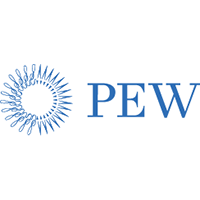USA
The Pew Charitable Trusts derives its name from its founders, the Pew family, which made their money in the oil and the military ship building industries. Originally there were seven separate trusts that were created by different members of the family after World War II to carry out, as a matter of principle, philanthropic work below radar. But Pew began changing its ethos in the final two decades of the 20th century. Most notably in 1990, when Pew appointed Joshua Reichert, a man who, in Pew’s words, ‘was known for his willingness to incur significant risk, and pursue bold strategies,’ to lead its environment and oceans programme work.
For example, in 1994 Reichert established and financed the National Environmental Trust (NET) to educate the public about global warming. Then in 2007, he initiated the merger of NET with Pew to create what the press release called the new ‘green team’ under his leadership. And in 2008 he helped found and fund the militant campaign group Oceana, which places a strong emphasis on creating vast marine protection zones with the intention of excluding fishing vessels and banning other industrial activities in their waters.
With billions of dollars in assets, Pew has always been one of the two most influential US-based NGO attending CITES’s meetings (second only to WCS in the US and WWF globally). In 2009, Reichert upped the stakes by appointing a former Chief of the U.S. CITES Scientific Authority as his Director of International Environmental Policy. In her new role with Pew (2009 – 2013) Sue Lieberman, whose previous job was Director of WWF’s Global Species Programme (2001-2009), made polemical confrontation her goal. (Today Sue Lieberman is Vice President, International Policy at the Wildlife Conservation Society and she heads its delegation to CITES).
At CITES’ CoP-16 in 2013 Lieberman abandoned Pew’s self-effacing tradition. Courting media headlines, she accused a bloc vote of East Asian countries of wanting to catch sharks for their fins ‘without any regulations’ to control their take. She then polarized the debate still further by alleging that East Asian countries were prepared to ‘wipe out these species’ in return for ‘short term benefits.’
Ahead of CoP-18 in Geneva, 2019, Pew reported that every year as many as ‘273 million sharks are killed by commercial fisheries.’ Therefore, PEW claimed, ‘shark populations have suffered declines worldwide’. Pew does not ask or consider how, if the annual catch rate is around 270 million sharks, this statement is compatible with its other core claim. Namely that, ‘half of shark species [the ones considered most commercially exploitable] and their relatives [sic] assessed by the International Union for Conservation of Nature are categorized [correctly] as Threatened or Near Threatened with extinction’. If sharks were threatened anywhere close to the level PEW claims (and we predict that at CITES COP19 PEW will claim that all sharks are at risk of extinction and should be listed in its appendices), the annual catch rate could not be maintained constantly at circa 270 million sharks but would most likely fall dramatically.
Leaders
Susan K. Urahn, president and chief executive officer
Governance
Board of Directors chaired by Robert H. Campbell.
Finance
According to Pew’s audited financial report, its annual revenue in year ending June 2019 was USD373,917,307. Total expenses were USD341,274,842, of which, according to form 990, salaries accounted for USD128,269,422.


